Co Directors
Each Supergen ORE Hub partner institution is represented on our Management Board by a Co-Director. As academic experts across a range of engineering specialties within Offshore Wind, Wave and Tidal technologies, together they bring an essential perspective enabling us to fulfil our mission of providing research leadership into Offshore Renewable Energy.
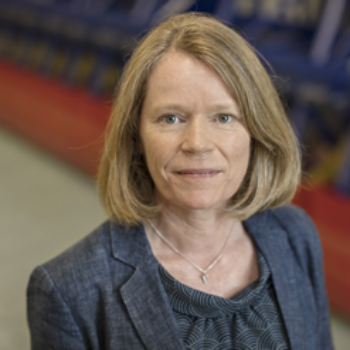
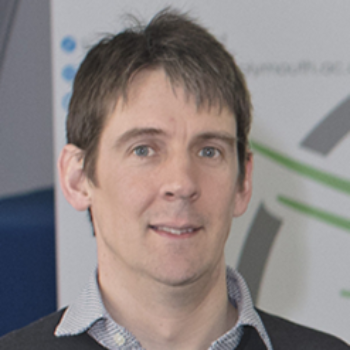
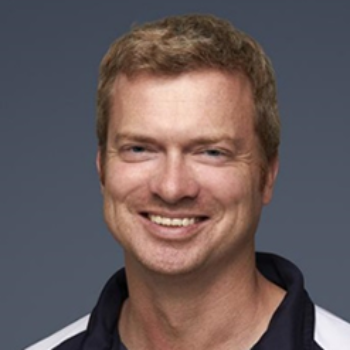
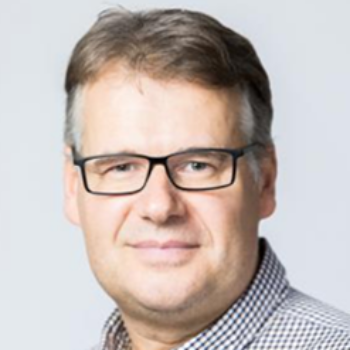
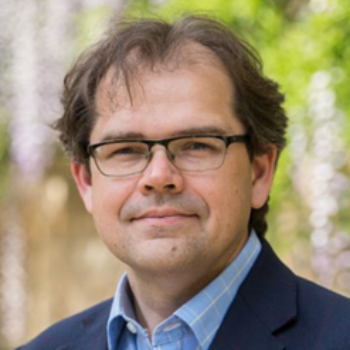
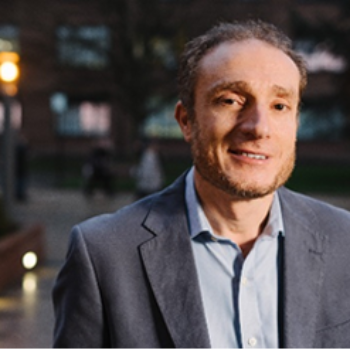
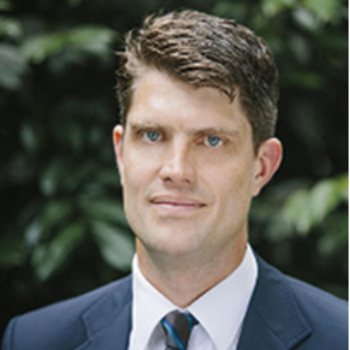
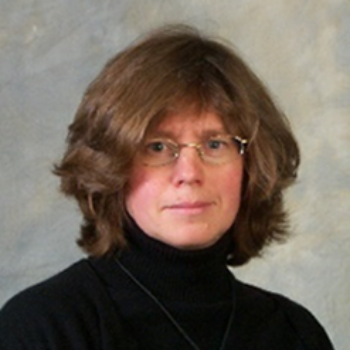
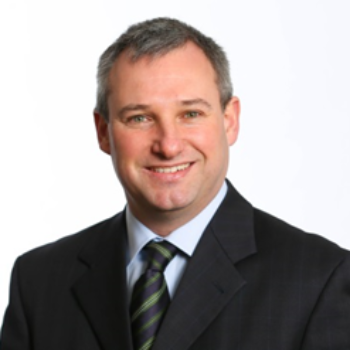
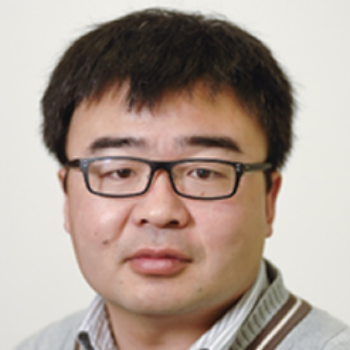
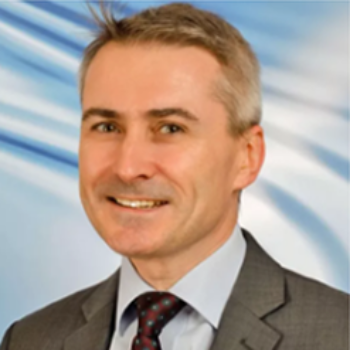
Professor Deborah Greaves OBE FREng FICE FRINA
Deborah Greaves is Head of the School of Engineering, Computing and Mathematics, Professor of Ocean Engineering and Director of the COAST Laboratory at the University of Plymouth with previous appointments at Oxford, UCL and the University of Bath.
Her research interests include marine and offshore renewable energy, and physical and numerical modeling of wave-structure interaction. She has led many national and international research projects concerning offshore renewable energy (ORE) in collaboration with industrial and academic partners and in 2017 was appointed by EPSRC as the new ORE Supergen Leader, directing the UK research programme in ORE. She recently published with Wiley an edited book on Wave and Tidal Energy (2018) and in the Queen’s Birthday Honours List, 2018, she was awarded an OBE for services to Marine Renewable Energy, Equalities, and Higher Education.

Professor Timothy Stallard MEng, DPhil
- Sector and Area Champion for: Tidal and Data Management
- Work Package Lead: Integrated Modelling Across Scales
Professor Tim Stallard is a Reader at the University of Manchester in offshore renewable energy with a particular focus on unsteady loading of systems within arrays (e.g. tidal stream systems, wave devices and wind turbines) and with interests in the assessment of economic viability.
Tim has been Principal or Co-Investigator on several major marine energy projects with net value of >£3M, including EU FP7 Equimar, the ETI PerAWaT, UK-China EPSRC-NEWTON ALLT-Tidal, ETI ReDAPT and the EPSRC Challenge project X-MED. His research also addresses floating body hydrodynamics with interests in wave energy arrays through EU FP7 WECWakes and wave device innovations EPSRC STEP-WEC.

Professor David White BA, MA, MEng, PhD (Cantab), FREng, FICE, FTSE, FRINA, FIEAust
- Sector and Area Champion for: Policy
- Work Package Lead: Sites and Conditions, and Communications and Engagement
Professor David White, at the University of Southampton, has held academic positions at the Universities of Cambridge and Western Australia and works primarily in offshore energy.
His work has attracted >£25M of funding, split between industry and competitive grants, leading to 8 best paper awards. The work has changed engineering practice for offshore infrastructure and mooring systems, with impact on industry design codes (API/ISO) and recommended practices (DNV), including recognition through 9 industry awards. His prior leadership roles include Founding Director of the Australian Research Council Hub for Offshore Floating Facilities as well as UWA’s Shell Chair of Offshore Engineering. He is a Fellow of the Royal Academy of Engineering.

Professor Henry Jeffrey
- Sector and Area Champion for: Policy and International
- Work Package Lead: Demonstration of Scenarios
Henry Jeffrey is a specialist in marine energy roadmaps, action plans and strategies. He is a co-director for the UK SuperGen (Offshore Renewable Energy) project and heads the Policy and Innovation Group in the University of Edinburgh’s Institute for Energy Systems. Henry chairs the European Energy Research Alliance (EERA) Ocean Energy Joint Programme (JP) and collaborates on numerous European and International marine energy projects. From 2017-2021 he held a position as the Chairperson of the International Energy Agency’s (IEA) Ocean Energy Systems (OES) programme, which is a government to government policy group responsible for supporting knowledge exchange and collaboration between countries and organisations active in the ocean energy sector.
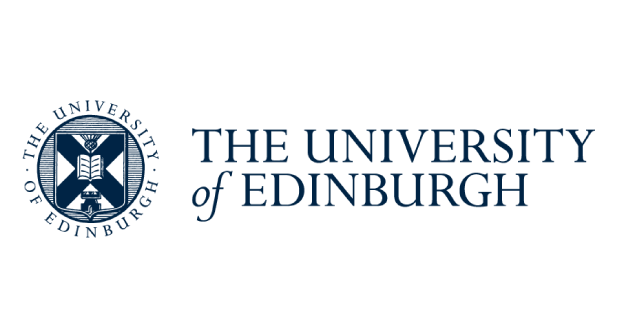
Professor Richard Willden MEng PhD DIC
- Sector and Area Champion for: Early Career Researchers
- Work Package Lead: Early Career Researcher Development
Professor Richard Willden holds an EPSRC Established Career Fellowship in tidal stream energy at the University of Oxford, where he has led fluid mechanics research for tidal and wind turbines for more than ten years (>£5M funded research).
His expertise is in multi-scale analysis and design of rotors for efficient energy extraction, including the development of energy extraction limits for turbine arrays that exploit constructive interference effects. His fellowship, “Tidal Stream Energy – Designing for Performance” is developing rotor array design and supporting methodologies for next-generation high-performance tidal arrays, including large scale laboratory demonstration tests of advanced multi-rotor systems. In wind energy he works with energy utilities to understand and model wake and blockage based wind turbine interactional effects. He was the Oxford Principal Investigator for the ETI PerAWaT project and has involvement in various EPSRC ORE projects.
Professor Willden shares hub duties with Professor Byron Byrne (also of University of Oxford).
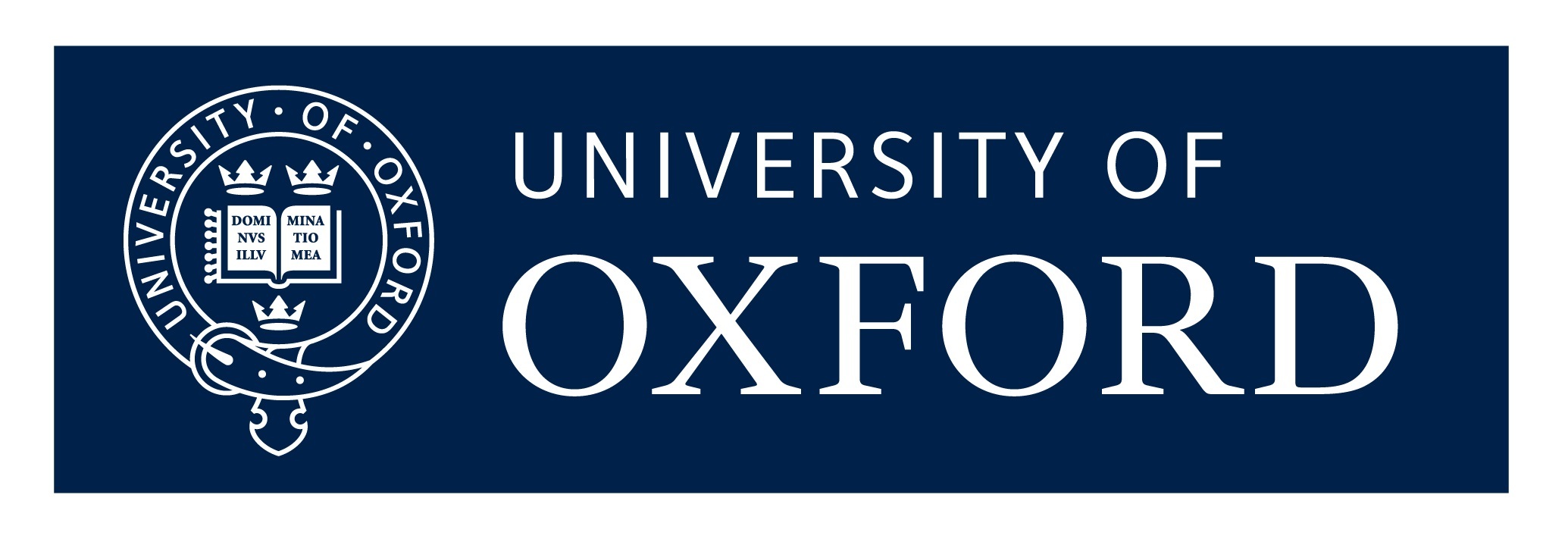
Professor James Gilbert
- Sector and Area Champion for: Equality, Diversity and Inclusion
- Work Package Lead: Equality, Diversity and Inclusion
Professor James Gilbert has extensive research experience in sensing, modelling and control systems research and in the development of innovative manufacturing processes. He is the Research, Development and Innovation lead for Aura, a collaboration between Siemens Gamesa Renewable Energy, Ørsted, University of Sheffield, Durham University and the Offshore Renewable Energy Catapult. He is Hull PI on the £7.6M EPSRC Prosperity Partnership ‘A New Partnership in Offshore Wind’. He leads industry interaction for the EPSRC/NERC funded CDT in Offshore Wind and the Environment and is UoH lead for the Operations and Maintenance Centre of Excellence, a £2M collaboration between UoH and the Offshore Renewable Energy Catapult.
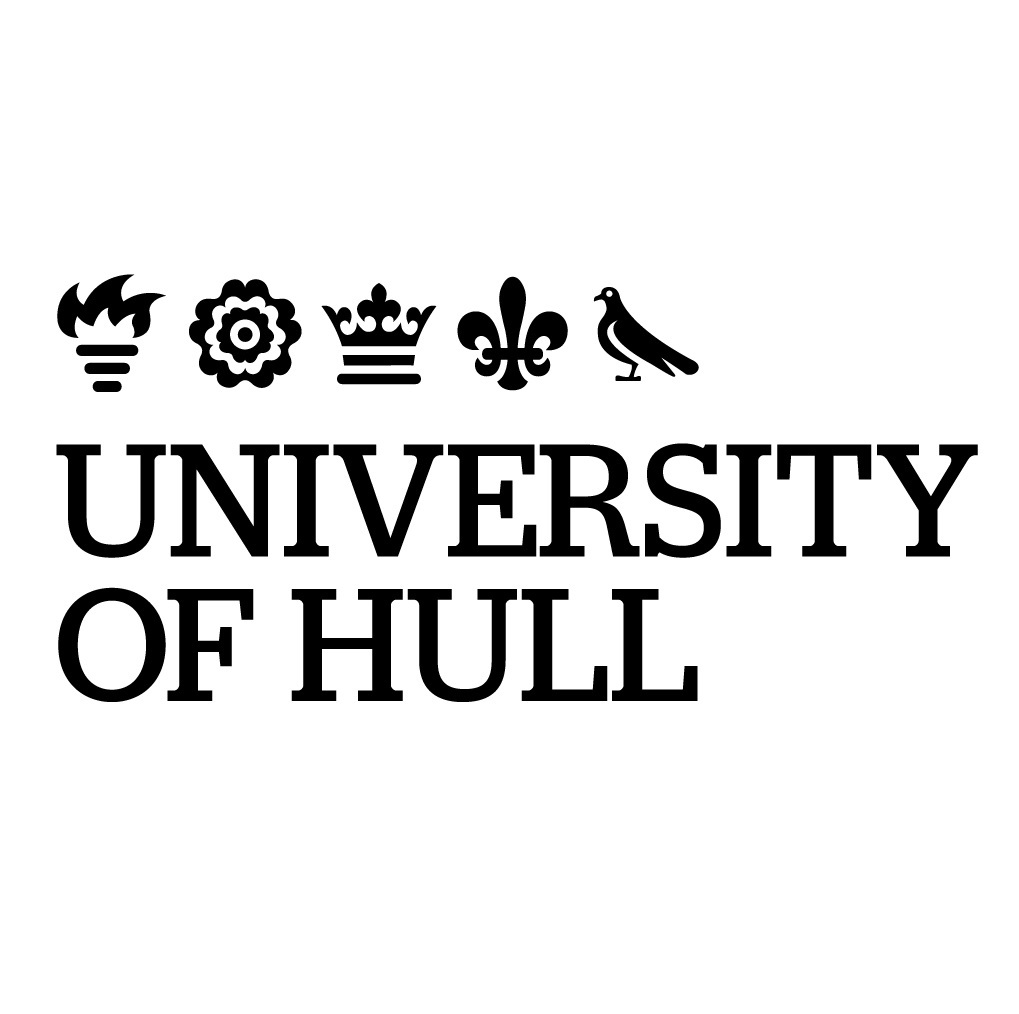
Professor Philipp Thies
Prof Philipp Thies is an Associate Professor Renewable Energy at the University of Exeter with research interests in offshore reliability engineering including component reliability testing, field load evaluation for ORE and statistical reliability methods.
He is Principal Investigator for the Innovate UK project for “Dynamic Load Reduction and Station Keeping Mooring System for Floating Offshore Wind” and has led a Newton Fund UK-China project on novel mooring systems. He acts as Co-Investigator for a GCRF UK-China project, an Innovate UK project and UKCMER. He is responsible for mooring risk assessment in the EU H2020 OPERA project, test activities in the EU H2020 Marinet2 programme and contributes to the IDCORE doctoral programme.
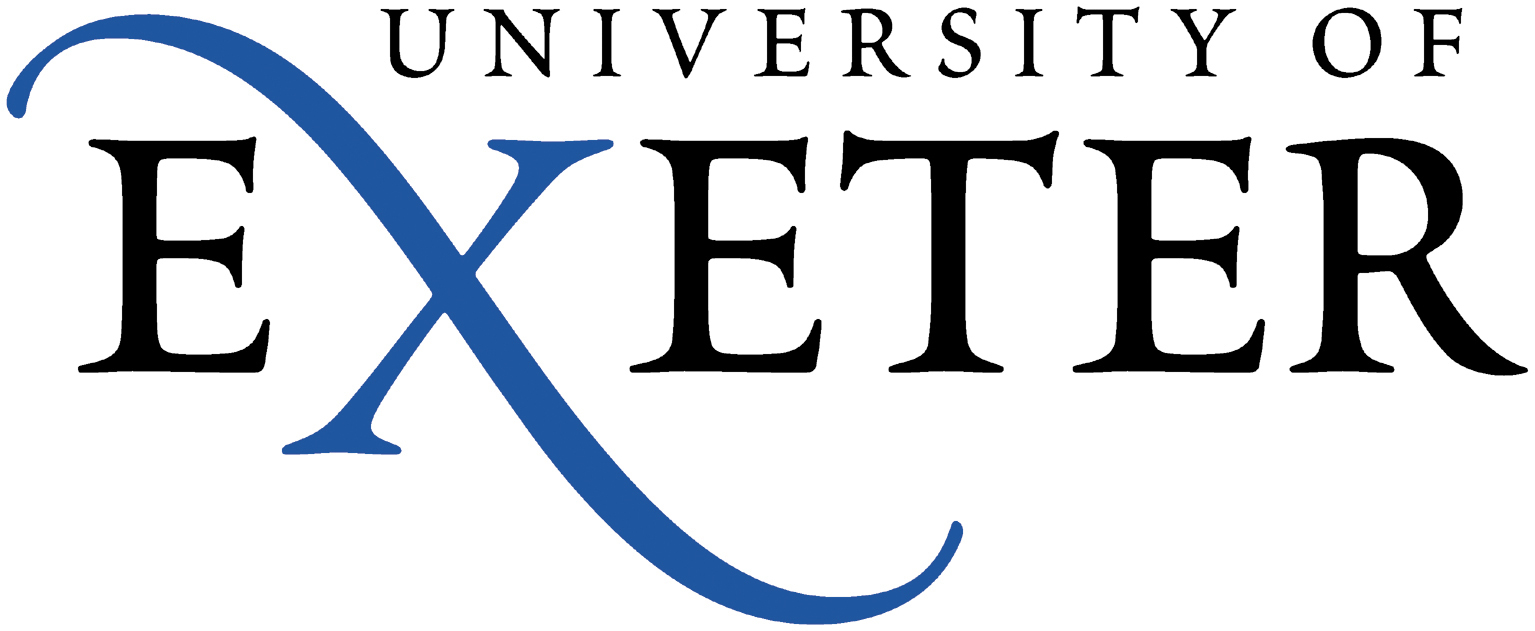
Professor Beth Scott BSc, MSc, PhD
- Sector and Area Champion for: Environment
Professor Beth Scott is a Professor in Marine Ecology. She conducts multi-disciplinary research using her expertise in marine ecology, oceanography and fisheries sciences.
Her research identifies general rules in bio-physical oceanographic processes that lead to the creation of hotspots of biodiversity and predator-prey activity. Specifically, her research group defines biological and physical variables that provide the limited, patchy locations and conditions where energy is transferred across trophic levels in marine food webs. Her research team using approaches ranging from the collection and use of fine scale (second by second) information throughout the water column as well as the analysis of large scale (100s or km) long term data sets on spatial and population dynamics. Both scales of information are also used within simulation modeling methods which are agent based. Recently her research portfolio has been focused on the understanding of the effects of marine renewable energy systems on multi-trophic interactions and the methods for co-developing a Marine Spatial Planning (MSP) decision-support system with a range of stakeholders (industry, government, NGOs, etc.) to better incorporate ecosystem service knowledge and values into effective policies.
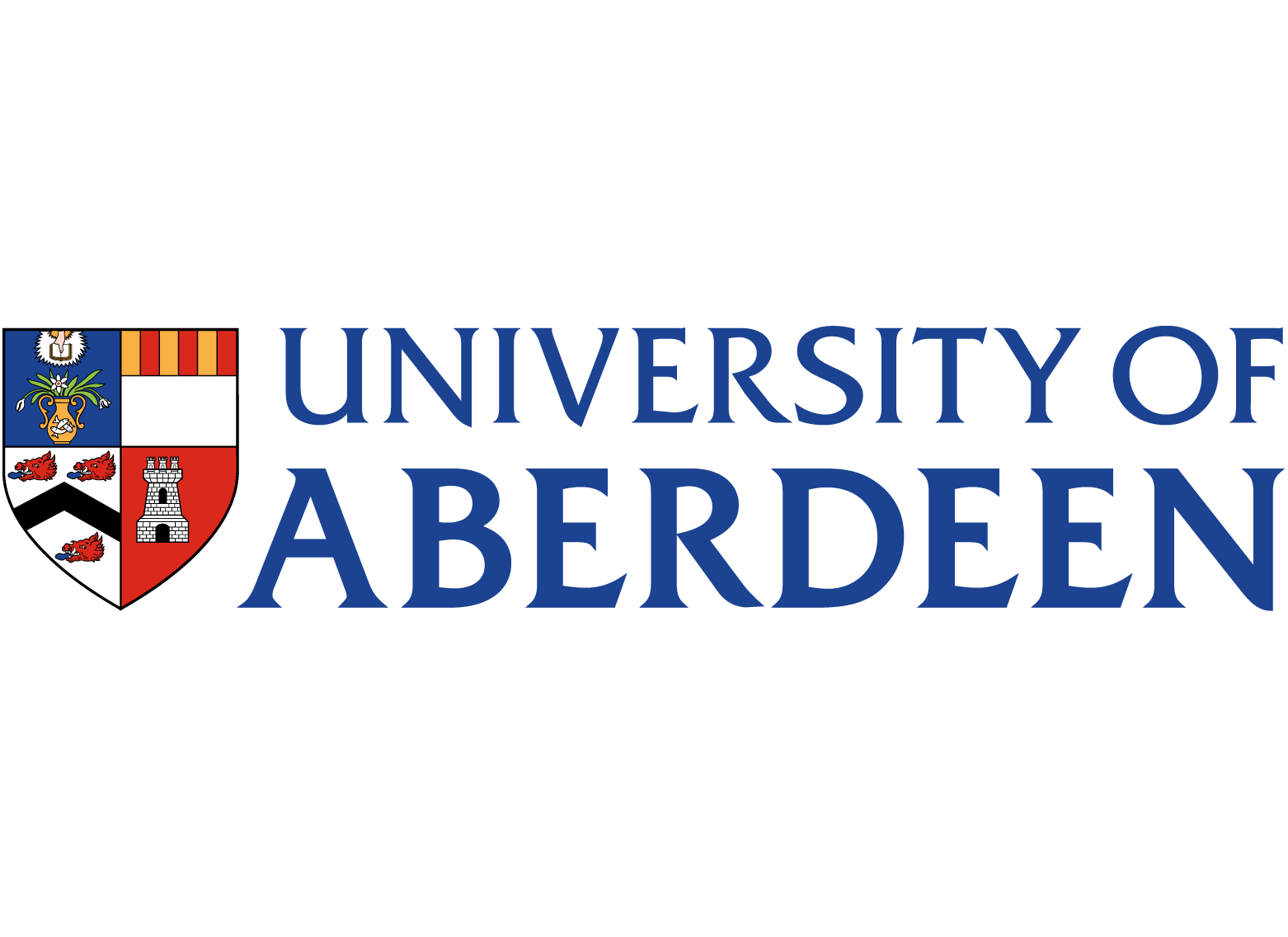
Professor Byron Byrne, BE (Hons) BCom MA DPhil
- Sector and Area Champion for: Early Career Researchers
- Work Package Lead: Early Career Researcher Development
Professor Byron Byrne is Professor of Engineering Science, Co-Director of the Supergen ORE Hub and Ørsted / Royal Academy of Engineering Research Chair in Advanced Geotechnical Design at the University of Oxford. He leads on research into the geotechnical engineering for offshore wind and other renewable energy structures. He was Principal Investigator for the Carbon Trust / Ørsted / Industry funded PISA project (2013-2018), which won the BGA’s Fleming Award for 2017, for delivering new design methods for large diameter offshore wind turbine monopiles. He currently leads on the Oxford–Ørsted Framework research project (2018-2028) on cyclic loading for offshore wind foundations and was a Co-Investigator on the EPSRC / industry ALPACA Project (2018-2023). He is a Co-Investigator on the Strathclyde / Oxford / Edinburgh EPSRC CDT for Wind and Marine Energy Systems and Structures (2019-2027), and was the Oxford Director, and Co-Investigator, for the Cranfield / Oxford / Strathclyde EPSRC CDT for Renewable Energy Marine Structures (2014-2022).

Professor Xiaowei Zhao BEng, MSc, PhD
Professor Xiaowei Zhao obtained his PhD in Control Theory from Imperial College London in 2010 and then worked as a postdoctoral researcher in the Control Engineering Group of the University of Oxford until 2013. After that he joined the University of Warwick where he was awarded a chair in 2018. At Warwick he has established the Intelligent Control & Smart Energy (ICSE) research group which currently includes around 20 PhD students and postdoctoral researchers. His main research areas are control theory and machine learning with applications to the offshore renewable energy systems and their grid integration, local smart energy systems, and autonomous systems. He currently has six main research projects (four from EPSRC and two from H2020) in these areas with a total project values of £20 million.
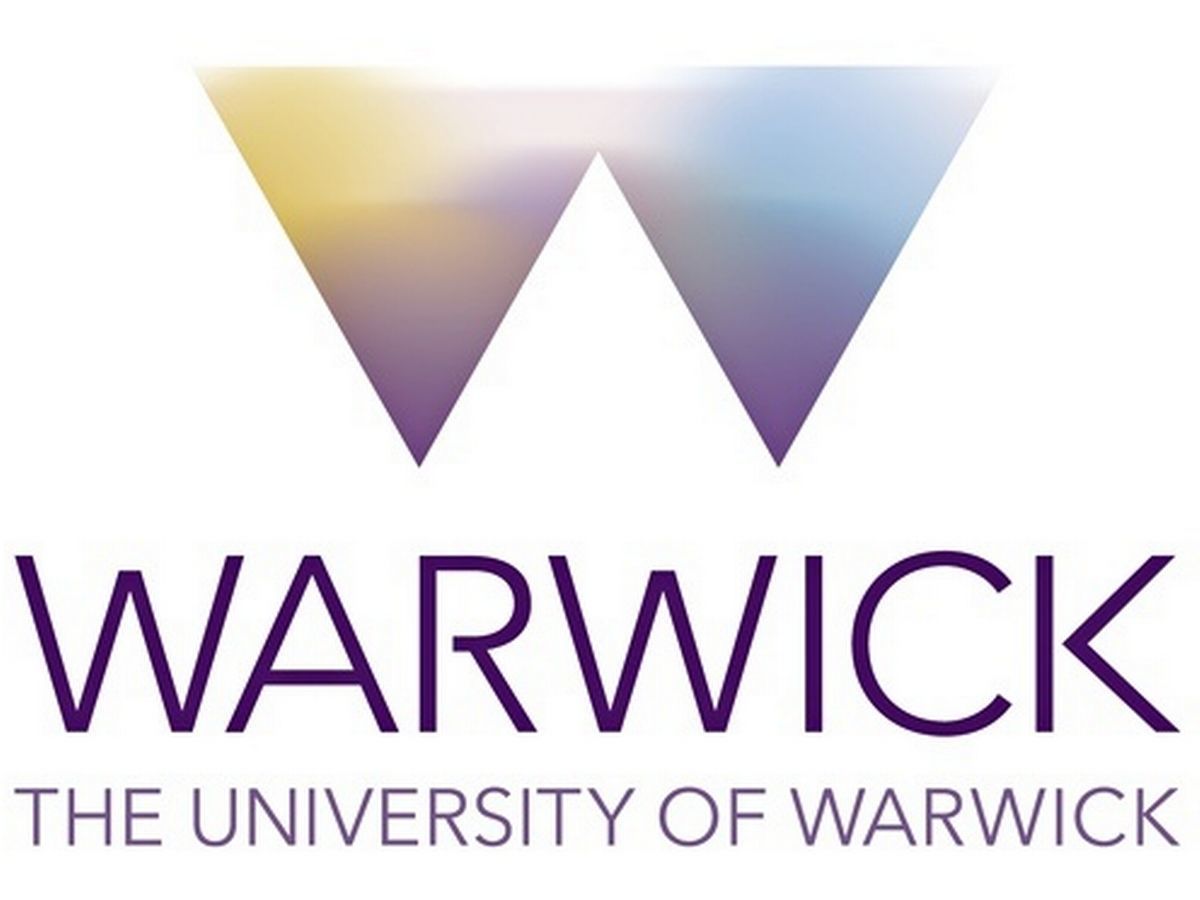
Professor Feargal Brennan
- Sector and Area Champion for: Offshore Wind
- Work Package Lead: Floating Offshore Renewable Energy Structures
Professor Feargal Brennan is Professor of Offshore Engineering at the University of Strathclyde and is currently the Director of the University of Strathclyde Offshore Engineering Institute and is the James Blyth Chair of Offshore Engineering at the Department of Naval Architecture, Ocean and Marine Engineering.
His research interests are in structural integrity of offshore structures for wind, wave and tidal power, mainly funded by industry (e.g. the Structural Life-Cycle Industry Collaboration - SLIC). He has been directly responsible for winning and delivery of >£20m in engineering research funding (£11.6m as Principal Investigator). He is a Co-Investigator of both Supergen Marine and Supergen Wind hubs and the centre for Advanced Materials for Renewable Energy Generation. He is a member of the Offshore Renewable Energy Catapult Research Advisory Board amongst many external appointments.
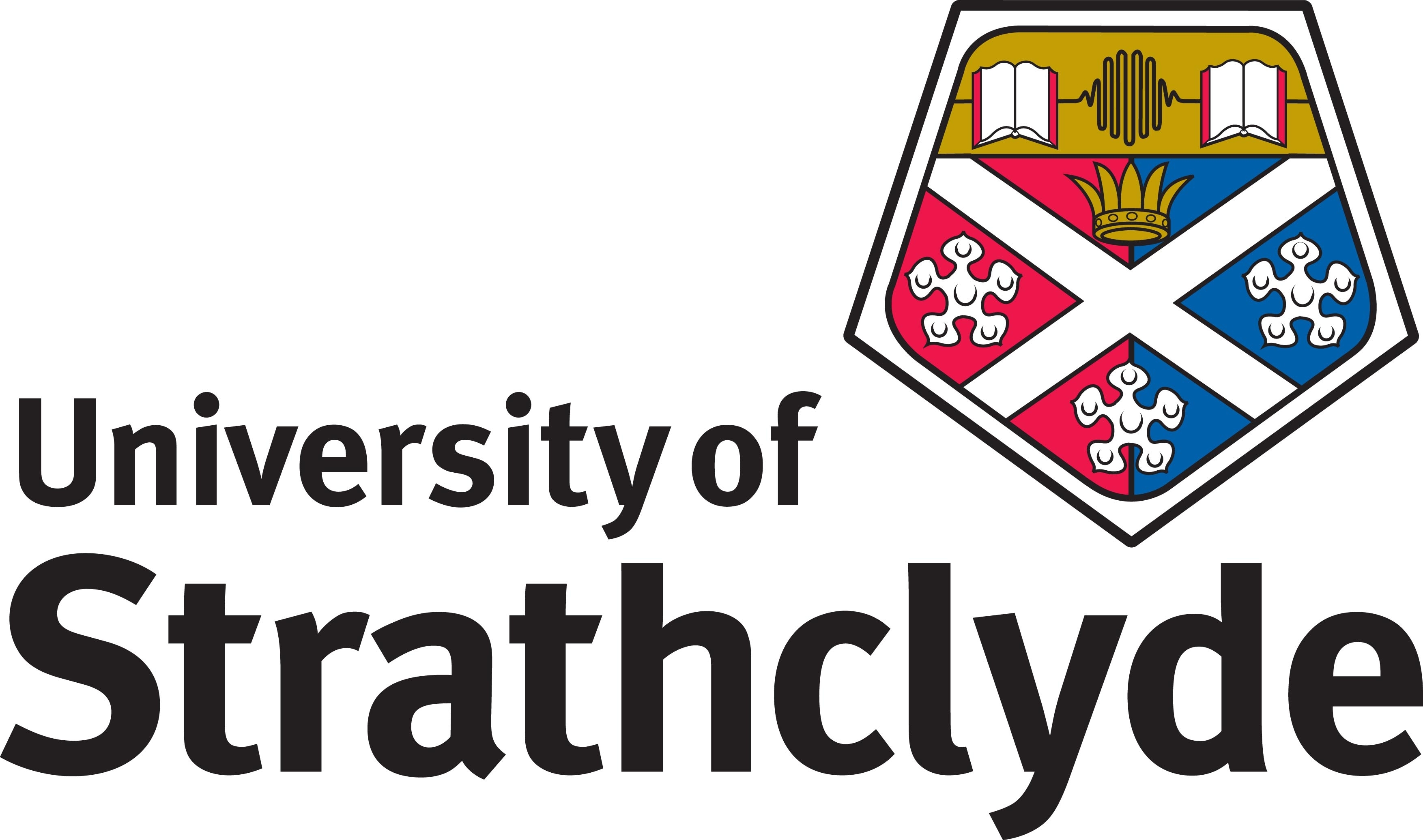
Advisory Board
Our Advisory Board brings together a group of experts within industry and government to provide the Hub with essential insight and dialogue beyond the academic sector.
The Advisory Board comprises of representatives from the Department for Business, Energy and Industrial Strategy, ORE Catapult, Carbon Trust, RenewableUK, Original Equipment Manufacturers (OEMs), utilities, developers and other sector leaders, covering all sectors and disciplines.
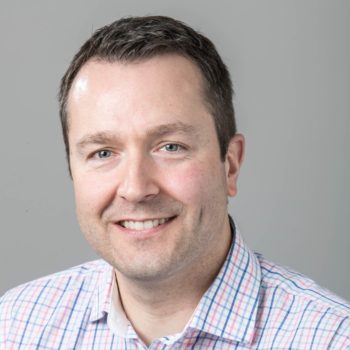

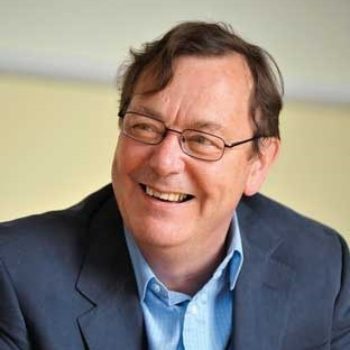
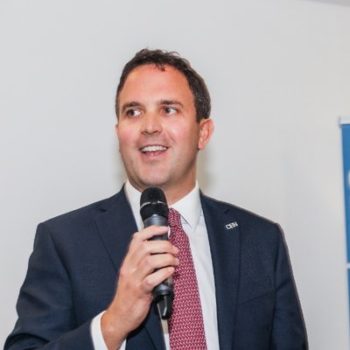
Paul McKeever
Paul joined ORE Catapult (formerly Narec) in August 2006 and holds the post of Head of Strategic Research responsible for research business development, external research collaborations and academic engagement. Previously, Paul occupied the role of Project Coordinator for the OPTIMUS FP7 project (prognostic condition monitoring) and prior to that, he occupied similar roles on the Snapper FP7 project and Aquamarine Power’s Oyster project (both wave energy converter projects). He is currently a Board member of the European Association of Renewable Energy Research Centres (EUREC), a Management Board member of the European Energy Research Alliance Joint Programme for Wind (EERA JPWind) and represents ORE Catapult on the SuperGen Wind Management Committee, the UKCMER Advisory Board and the Durham Energy Institute’s Industrial Advisory Board.

Ross Wigg
Ross founded Rayner Low Carbon Technologies in 2018 to accelerate the adoption of low carbon technologies, through research, innovation & engineering.
With a career spanning over 22 years, Ross previously was Renewables Director (Asset Performance) for LOC (London Offshore Consultants). Prior to this he joined Lloyd’s Register in 1997 during which time he founded, and was Head of the Renewable Energy business, growing it into a global enterprise with operating facilities across various renewables sectors. He was also a member of the Lloyd’s Register Energy Technology Board between 2011 and 2016. In 2018, Ross was appointed Co-Director and Lead Industrial Partner to the EPSRC Supergen ORE Programme.
Ross has a wealth of experience within the renewables industry and is an advisor to several boards, including Supergen ORE Hub, REMS CDT Programme, ESPRC review panel and was also a member of the IEC / BSI Wind & Marine Energy Standards Committees.
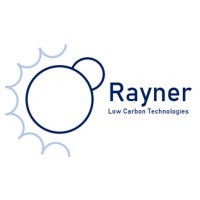
Andrew Garrad CBE FREng
In 1984, Andrew co-founded Garrad Hassan (GH) in Bristol. It grew to become the world’s largest renewable energy consultancy, employing 1,000 people in 29 countries. He became President of GL Garrad Hassan after Germanischer Lloyd (GL) and Garrad Hassan merged in 2009. He ran the new company until 2012, when he became Chairman. After the merger of DNV and GL in 2013, Andrew became a member of the DNV GL Energy Supervisory Board.
Andrew has been professionally involved in wind, wave and tidal energy for over four decades. He built his first wind turbine in 1971. From 2013 to 2014 he was President of the European Wind Energy Association (EWEA) and he is a past-Chairman of the British Wind Energy Association. He chaired Bristol’s year as European Green Capital in 2015. In 2006, he became the first British recipient of EWEA’s Poul la Cour prize, and in 2015, he became the only non-Greek recipient of the Hellenic Wind Energy Association’s Aeolus prize. Under his leadership, GH twice won the Queen’s Award for International Enterprise. He is an Honorary Fellow of New College, Oxford.

Barnaby Wharton
Barnaby leads RenewableUK’s thinking on the future of the electricity system as renewables has become the mainstay of the UK’s generation. His work includes flexibility markets, energy storage, the role of EVs and the future of hydrogen. Prior to his current role, Barnaby was Head of Policy and Regulation where he led a team of policy managers to help create an environment for growth in the UK's renewables. Barnaby worked with onshore, offshore and marine sectors to secure long-term routes to market, in a flexible energy system to deliver low carbon growth.

Research Alignment Group (RAG)
Our Research Alignment Group is a non-executive body selected by our Management Board to provide independent, objective, impartial advice and strategic guidance on the direction of Supergen ORE Hub research.
They are a panel of expert academics and industry representatives who are exceptionally well placed to help us focus on research relevant to the ORE sector. Especially areas of emerging research activity that might not yet be adequately integrated within ORE research programmes.
Supergen ORE Hub RAG participants include:
- The Principal Investigators (PIs) of ORE research projects funded by UK Research and Innovation, including fellowships with a remaining project duration greater than one year.
- UK PIs of substantive ORE research projects funded by non-UKRI sources, with a remaining project duration greater than one year.
- Representatives from key infrastructures, such as European Marine Energy Centre (EMEC), WaveHub, and relevant groups, such as PRIMaRE (Peninsula Research Institute for Marine Renewable Energy), MASTS (Marine Alliance for Science and Technology for Scotland) and LCRI (Low Carbon Research Institute).
The RAG meets once annually, with membership of the group being reviewed twice a year to reflect the ORE research portfolio funded by UKRI and other sources. Whilst they help us set direction, they are not responsible for the procurement or commissioning of research.
Supergen ORE Hub Team
Our operational team, based at the University of Plymouth provides the day-to-day running and administration for the hub. Our team of three undertake a wide range of roles. At the heart of it, they make sure all of our activity is aligned with and meets the objectives as set out in the Hub's mission statement.
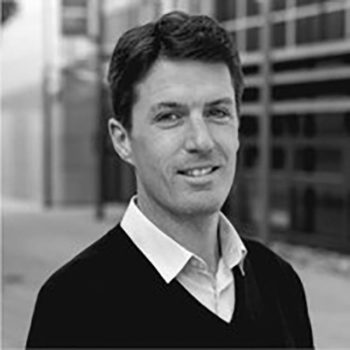


Lee Richards
Lee Richards, as the Supergen ORE Hub Manager, oversees the operational and delivery activities of the Hub and leads and directs the workflow of the Supergen ORE Hub team. This includes developing and promoting the Hub at events and conferences, supporting the Co-Director leads with all non-research based activities, managing the Supergen ORE Hub Flexible Fund allocation through a transparent and trusted process, managing funding, budgeting and reporting requirements and liaising between the Hub Co-Directors, Advisory Board, Research Alignment Group and Research Council Funder. Prior to the Supergen ORE Hub, Lee spent 10 years within the renewable energy sector at Regen SW, supporting the development and delivery of programmes to support the wider renewable energy industry in the UK, both within the onshore and offshore renewable energy sectors. This was followed by two years as Senior Research Manager at the University of Plymouth, delivering a range of targeted research projects to Government Departments, third sector organisations, industry stakeholders and academic institutions.
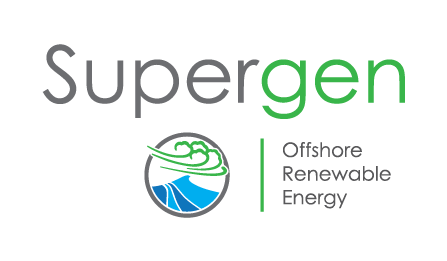
Barbara Fuller
Barbara is the Administrator for the Supergen ORE Hub. Drawing on her experience of 22 years’ experience supporting senior members of staff at the University of Plymouth, and background in the private banking sector, Barbara is responsible for the assisting with the financial and administrative processes of the Hub. This includes assisting with the management of funding and budgets, organising meetings, and supporting the team with event logistics. Barbara’s City and Guild Diploma in Occupational Safety and Health ensures adequate risk assessments and safety procedures are in place for conferences, visits and trips. Barbara holds a BSc (Hons) in Politics from the University of Plymouth, and is passionate about supporting equality, diversity and inclusion.

Rosie Mascall
Rosie is responsible for the Hub Communications and Engagement Strategy, developing our communication channels and creating content to keep our audiences informed and engaged. This includes assisting with developments and content creation for the website, delivering outreach and engagement events, managing our social media channels, and sharing news and opportunities with our network.

ECR Representatives and Committee Members
The ambition of the Supergen ORE Hub is to accelerate the impact of Offshore Renewable Energy (ORE) devices and systems and to drive forward demonstrable contributions to the UK meeting net zero. The Early Career Researcher (ECR) network is a crucial part of the Hub's research leadership ambition, to support the development of the UK energy research leaders of the future who will deliver high-level objectives and lead the contribution of offshore renewable energy to net zero.


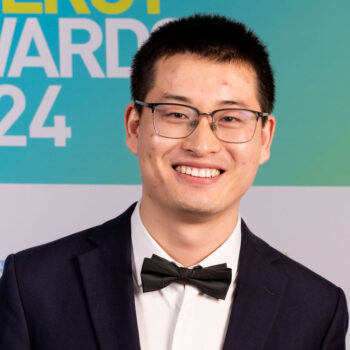
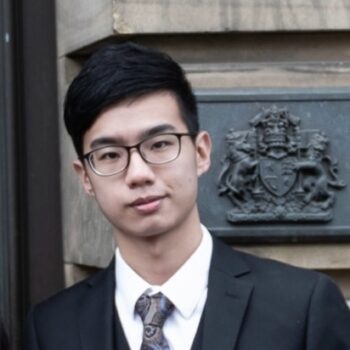
Dr Emma Edwards - University of Oxford
Dr Edwards completed her BSc in Mathematics at the University of North Carolina in 2012. She then worked as a Research Assistant for a year at the University of Edinburgh's Institute for Energy Systems, where she was introduced to wave energy. Emma completed her PhD at MIT in 2020, and her thesis, supervised by Professor Dick Yue, was titled ‘Optimisation of the geometry of axisymmetric point absorber wave energy converters.’ She then held a part-time postdoctoral position at MIT with Professor Yue for a year. From 2021-2023, she was a Postdoctoral Research Fellow at the University of Plymouth, working with Professor Deborah Greaves and Dr Martyn Hann, expanding her expertise to floating offshore wind and physical modelling. In October 2023 she started as a Career Development Fellow in Engineering at St Peter's College, University of Oxford.
Emma has been part of the Supergen ORE community for the past 2 years, since moving to the UK. She has been actively involved in the ECR community, attending the ECR Forum and Annual Assembly as well as participating in outreach events such as the Green Man festival.

Dr Hannah Mullings - University Manchester
Dr Mullings graduated with a First Class MEng degree in Mechanical Engineering in 2015. Following this she went on to begin a PhD in Mechanical Engineering investigating the loads on a tidal stream turbine due to different unsteady operating conditions. In 2021, Dr Mullings was awarded a fellowship of the Higher Education Academy as well as a Chartered Engineer through the Institution of Mechanical Engineers. For the last four years, Dr Mullings has been supported as a Postdoctoral Research Associate and subsequently as a Research Fellow at the University of Manchester, continuing research into offshore renewable energy.
Hannah has been a well connected part of the ECR Community for several years, participating in the Supergen ORE Hub ECR Forum and connecting with the wider community through a series of different roles and involvement in sector conferences.

Dr. Yabin Liu - University of Edinburgh
Yabin’s research focuses on applied fluid dynamics and innovative flow control technologies on mitigating vortices, cavitation, wake, and noise. Ultimately, he aims to enhance the efficiency, resilience, and cost-effectiveness of wind and tidal turbines.
Yabin completed his doctoral degree at Tsinghua University in 2021, receiving accolades such as the Outstanding Doctoral Thesis Prize and the Beijing Outstanding Graduate Prize. Additionally, he spent a year at the University of Cambridge as a sponsored PhD visitor. His doctoral research was recognised with the China Mechanical Engineering Society HiWin Doctoral Dissertation Award, the most prestigious accolade for PhD graduates in Mechanical Engineering.
He served as a Research Associate at the University of Edinburgh (2021 - 2023), working on the EPSRC Morphing Blades project and exploring gust mitigation through passively-pitching and flexible blades. Subsequently, he began his independent research journey as the first holder of the 1851 Research Fellowship at the School of Engineering, University of Edinburgh, and the sole annual recipient of the Brunel Fellowship.
He has a distinguished peer-reviewed publication record, with three ESI Highly-Cited/Hot papers and an h-index of 15. As PI or awardee, he has won more than £ 800k funding in total.
He plays active roles in the fluids and offshore renewables communities, especially for early-career researchers. He was recently recognised as green energy industry trailblazer and won the Young Professionals Green Energy Awards 2024, which is set to recognise the next generation of leaders in renewables in the UK.

Dr Zekun Guo - DAIM, University of Hull
Dr. Zekun Guo is a Lecturer at the Centre of Excellence for Data Science, Artificial Intelligence, and Modelling (DAIM) at the University of Hull. Dr. Guo received his PhD degree in Electronic and Electrical Engineering from Brunel University in August 2023. His doctoral research focused on Electrifying Energy Networks for Green Airports. He began his PhD studies at Cranfield University on November 1, 2019, before transferring to Brunel University London on August 1, 2021. Prior to his PhD, Dr. Guo completed an MSc by research in Energy Systems at The University of Edinburgh in 2019.
In 2024, Dr. Guo took on the role of Supergen ORE ECR Committee Communication Officer. He specialises in the development and design of artificial intelligence-based control and estimation methods to enhance the energy efficiency of renewable energy systems, particularly in offshore wind and wave energy conversion.


